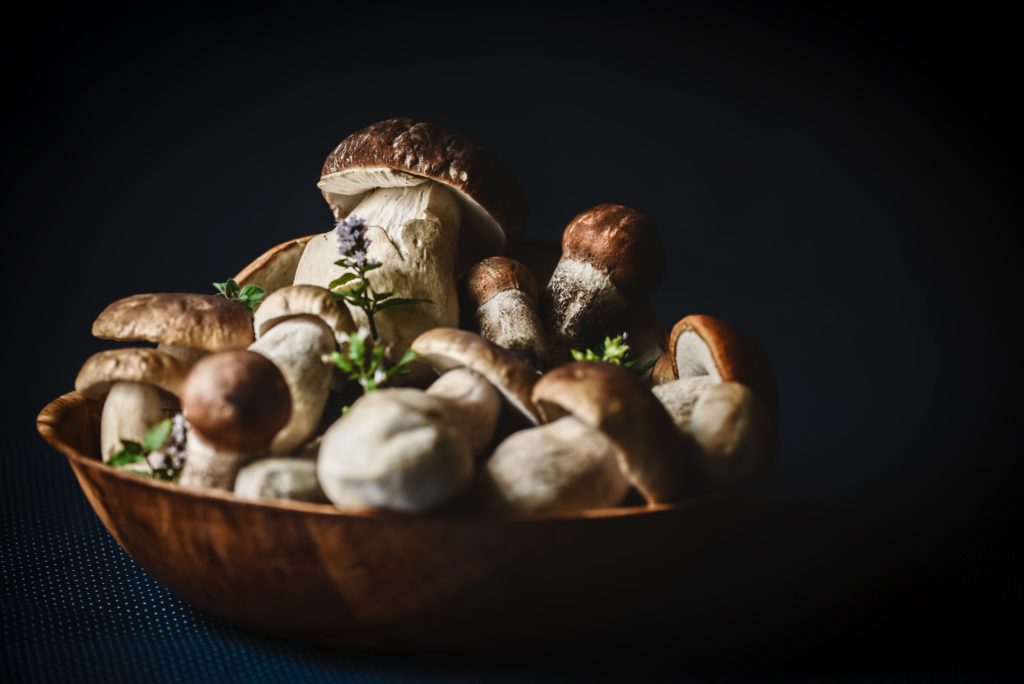All fields are required
Posted in Food Safety,Our Blog,Outbreaks & Recalls on March 30, 2019

An outbreak sourced from serving poisonous mushrooms at a Michelin-starred restaurant in Valencia has caused 29 illnesses and left one 46 year-old-woman dead. Here’s what you need to know in this death by mushrooms outbreak:
Food poisoning has left RiFF, an established restaurant in Spain, remorseful after an investigation exposed their menu as the culprit to multiple illnesses. With the affected item still under question, the mystery causes the public to grow weary of fine dining establishments.
The outbreak occurred sometime between February 13th and 16th, and left various patrons infected with the food-borne illness, including the husband and 12-year-old son of the diseased person. An investigation focused on 75 people that dined at the popular establishment between the above-dates, unveiled 29 more illness; that of which, included three families. Along with a pending autopsy report of the 46-year-old woman, who died at home approximately two weeks after a visit to RiFF, samples of the dishes served are under toxicology testing. Without those detailed results, it’s impossible to say what item on the menu caused the horrific ending. However, some fingers are pointing at Morel mushrooms as the possible contaminate. Morel mushrooms boast specific rules on how they are prepared, or gastric distress is a likely outcome. Whether the food itself was compromised, or improper handling by the restaurant is to blame, it’s a hit to the Michelin star expectations.
The Michelin star is a prestigious prize within the century-old guidebook tradition. The guide is published yearly and is often the go-to book for those seeking establishments that offer outstanding service. The coveted three-star award is a rarity but being included in the guide is considered a noteworthy achievement. With the aggressive standards to remain uncorrupted, Michelin holds a tight-lipped approach to their investigator’s identity. Oftentimes, the families of inspectors are unaware, and interviews are fully restricted.
The star-ranking is seen as a blessing and curse amongst the restaurateurs of the world, as the standards of the award is difficult to maintain. Some chef’s, like Julio Bioska, returned the rank in order to have more creativity with their culinary choices without the weight of the guidebook on their shoulders. While a boost in revenue comes with the star, the loss of it comes as a harsh blow. In a YouTube video published by the Daily Mail, it was revealed that after Chef Gordon Ramsey’s sold his popular restaurant, the London, it eventually lost its coveted rating. This led to an emotive response from the television celebrity and culinary expert.
Though the pride for chefs to obtain the star remains a strong burn, Michael Ellis, the international director of Michelin Guides, explains the stars are not awarded to the chefs, but to the restaurant. Nonetheless, the emotional tie for chefs will likely remain at full strength. A death resulting from eating at a starred restaurant is undoubtedly a devastating blow to the food artists at RiFF.
RiFF’s owner and head chef, Bernd H. Knöller, revealed in a recent statement that the restaurant will remain closed until more answers are revealed:
“I have made the decision that the restaurant remains closed until the causes of what happened are established and the activity can be resumed with full guarantees for both staff and all customers.”
The Center for Disease Control says that Food poisoning symptoms vary dependent on the germ. Symptoms appear from 30 minutes to four weeks after consumption. These times also vary with the severity of the illness. For example, Listeria can take from one to four weeks for symptoms to appear, while Salmonella makes its debut within 12 to 72 hours. While food poisonings might self-correct over time, it’s important to seek advice from a medical professional for treatment as long-term effects can lead to chronic arthritis, nerve or brain damage, and/or kidney failure due to Hemolytic Uremic Syndrome.
The most common signs of food poisoning are:
More extreme conditions from food poisoning are:
There are steps you can take, as well as those who prepare your food, to insure you are not a victim of the illness. Proper cooking, cleaning, and storing standards are required at restaurants simply for this reason. However, as we’ve learned with RiFF restaurant, you may be exposed unknowingly.
The Michelin guidebook most likely won’t take a major hit for steering consumers to the restaurant, but it’s a devastating moment for its history. For now, the restaurant will bear the burden of this tragic event. It’s a long way to fall from the heights of the Michelin star rating, and the responsibility for the death of a customer makes the depths deeper. While the public waits for the results that will unveil who is truly responsible, a family mourns for a mother, others heal from an illness, and a chef struggles with the reality of what the food he prepares has caused.
Here’s hoping improper food handling didn’t lead to this sad event; but, more importantly, I am passionately expectant that the investigation will find the ground zero of this food poisoning in efficient time.
Remember, cook, store, and wash your food to CDC standards. Scrub your hands more than you want to and follow the news to protect you and your family from the next outbreak. These tactics will drastically decrease your chances of food-borne illness, but for the moments that contamination breaks through your defenses, refer to a medical professional. Oftentimes early detection is easier healing.
For now: happy dining, joyful cooking, healthy eating, and make foods safe. On a personal note from this writer:
To those suffering from this food-borne illness, your loss is impossible for me to fathom, but I offer you the empathy and hope for you to make it through your tragedy. Best wishes in your future, and healing through your grief.
By: Heaven Bassett, Contributing Writer (Non-Lawyer)
References